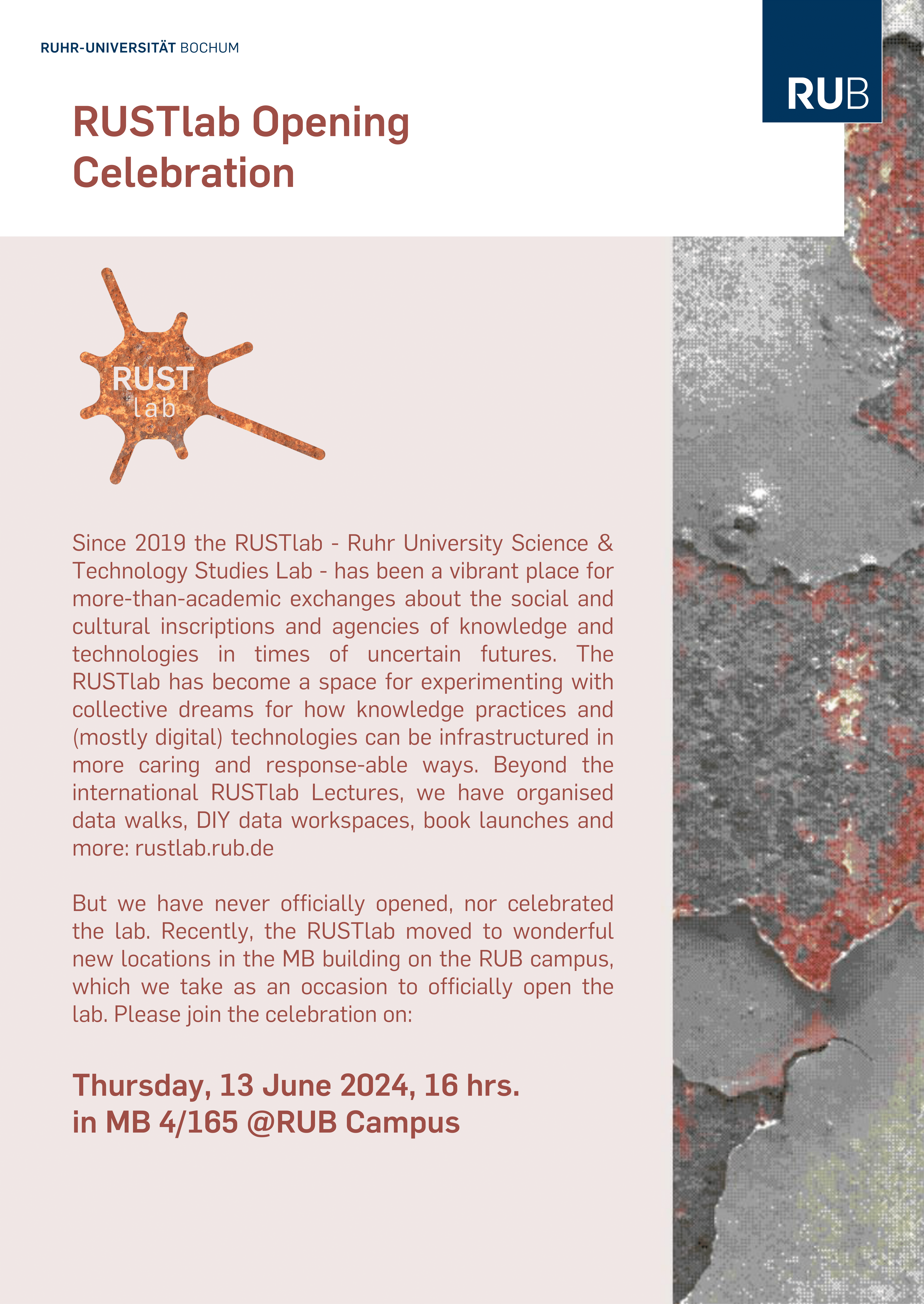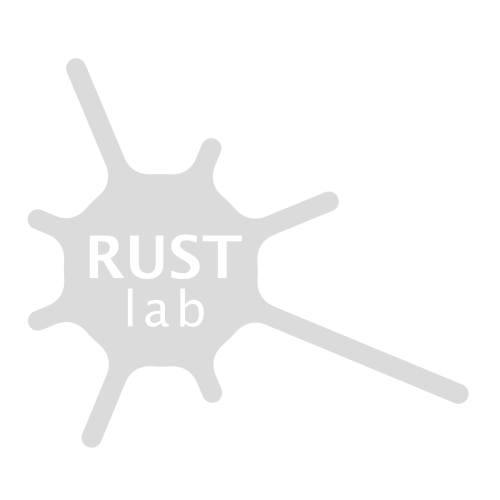Join us on Thursday, June 13th, from 14-16 hrs (German time) for the third RUSTLab lecture of this summer term. Robert Queckenberg will present his work on “Replacing Theories? Scraping Theoretical Debates in the Digital Humanities”. The lecture will be followed by the RUSTlab’s opening celebration in MB 4/165 (see the poster below).

Abstract of the lecture:
That theories are being replaced or re-placed is not a new idea – both in the sense of an old theory being substituted by a newer one and in the sense of a theory being transferred from one context to another. It was no accident that Thomas Kuhn likened his paradigm shifts to the upheaval caused by political revolutions to emphasize how scientific knowledge is not simply accumulated but also always severely contested. What may be new, is the idea that theories are being replaced not by other theories but by data. While data are hardly a new phenomenon in scientific research, the advent of big data over the course of the last two decades has tempted some to proclaim theories as obsolete, the idea being that with large amounts of data and sufficiently high computing power there would be no more need for human theorizing and the numbers would “speak for themselves”, as Chris Anderson famously put it. In the digital humanities data-driven research methods have come face to face with scholarly traditions that value theory and particularly certain kinds of theory very highly, opening fault lines that this talk aims to explore.
Robert Queckenberg studied Comparative Literature and English in his Bachelor’s and became particularly interested in theories and their role in the humanities. As well as the relationship of the humanities to the sciences. To pursue this avenue further he went on to study History, Philosophy and Culture of Science (HPS+) in his Master’s. Upon acquiring research practices and analytical tools designed for the purpose of the philosophical study of science he endeavoured to adapt and apply those to the study of the humanities. Over the course of the Master’s degree the focus of attention gradually moved towards the digital humanities as a particularly interesting subfield that developed only recently and is stretching the boundaries of traditional humanities research. This leads to intriguing fault lines, one of which, the one around the use of theory, Robert explored further in his Master thesis, which forms the foundation or backdrop of this talk.
Location of the lecture: on campus (MB 0/172) and Zoom
Zoom Link
PW: RUSTlab
You will find additional resources and information on this term’s guiding theme Replacement here on our website
